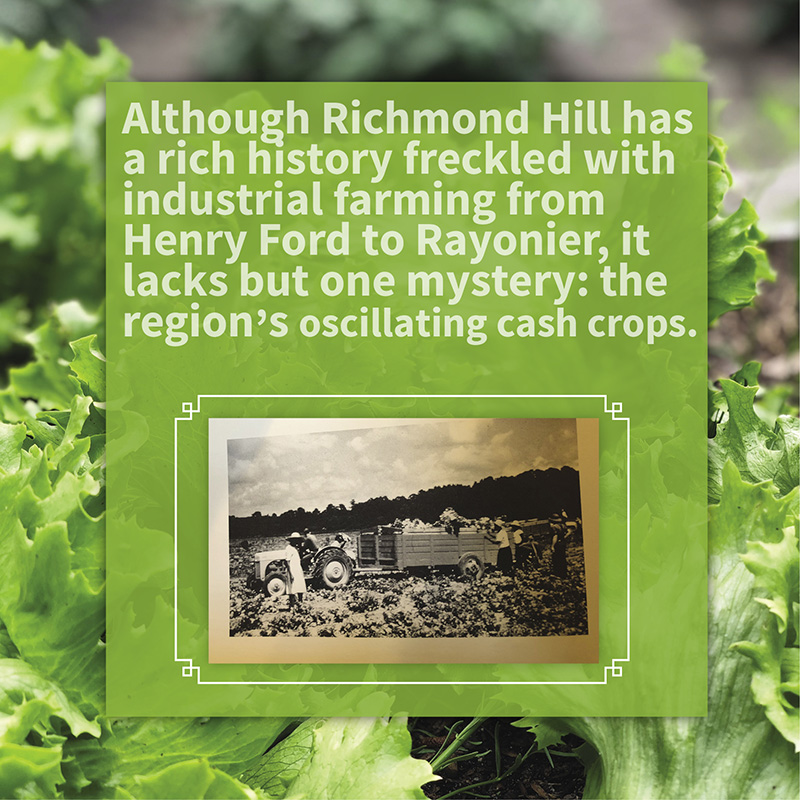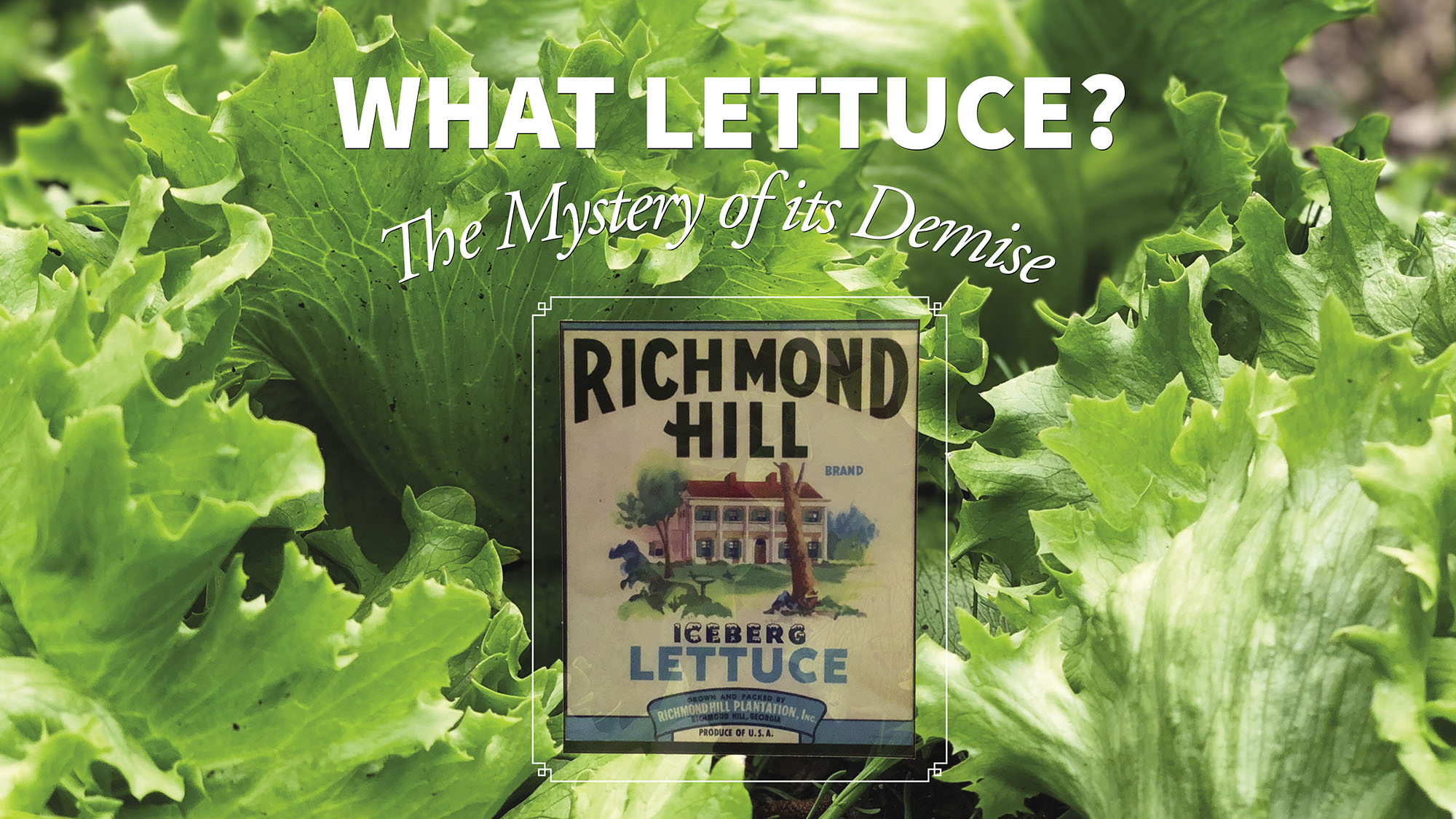Shortly after Ford’s colonization of the land in 1925, the once profitable rice fields were rehabilitated for iceberg lettuce, which flourished in the brackish soils of the adjacent marsh. In a subsection of Franklin Leslie and Lucy Bunce Long’s, The Henry Ford Era at Richmond Hill, Georgia, it was recorded that between 120-145 acres of lettuce were planted among the reclaimed rice paddies per year. An excerpt reads that “customers often told us that [the lettuce] was pre-salted. It was so good that when we were packing it, the workers sometimes took along a jar of mayonnaise and ate a head at lunchtime.”
Shipments supplied local markets and fed families all along the east coast for ten successful years until, suddenly, production stopped altogether. Could it have been the process to convert viscous fields into those fit to sustain lettuce? Ford was known to have implemented a large, auger-type water pump to expel over 20,000 gallons of water per minute away from the fields and into the nearby river; “even an inch of rain would put over eight million gallons of water on the field” for which the pump had to distribute lest the crops be ruined. Or could this repetitive, mass jettisoning of cash crops be that they were too laborious? Lettuce growing and cultivation was intensive, “often reflecting the hard work conducted on the former rice plantation in the 19th century.”
Truthfully, the area’s agricultural sterility lies in the decisions of its owner. He or she remains the stipulator, and can just as well abandon one cash crop for another, more increasingly popular one. Perishable commodity farms are still nearby; today, there are no large farms in Richmond Hill, save the abundance of timber and pine trees grown by Rayonier. There is no doubt that large-scale farming has given way to urban sprawl: a successful crop of another kind. This past century has inaugurated hosts of developing neighborhoods, golf courses, and commercial space as Richmond Hill’s main cash crop. As members of the community, we are just as much a consumer as ever.
So, what happened to the lettuce? You might just be sitting on what remains.














